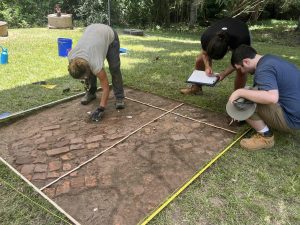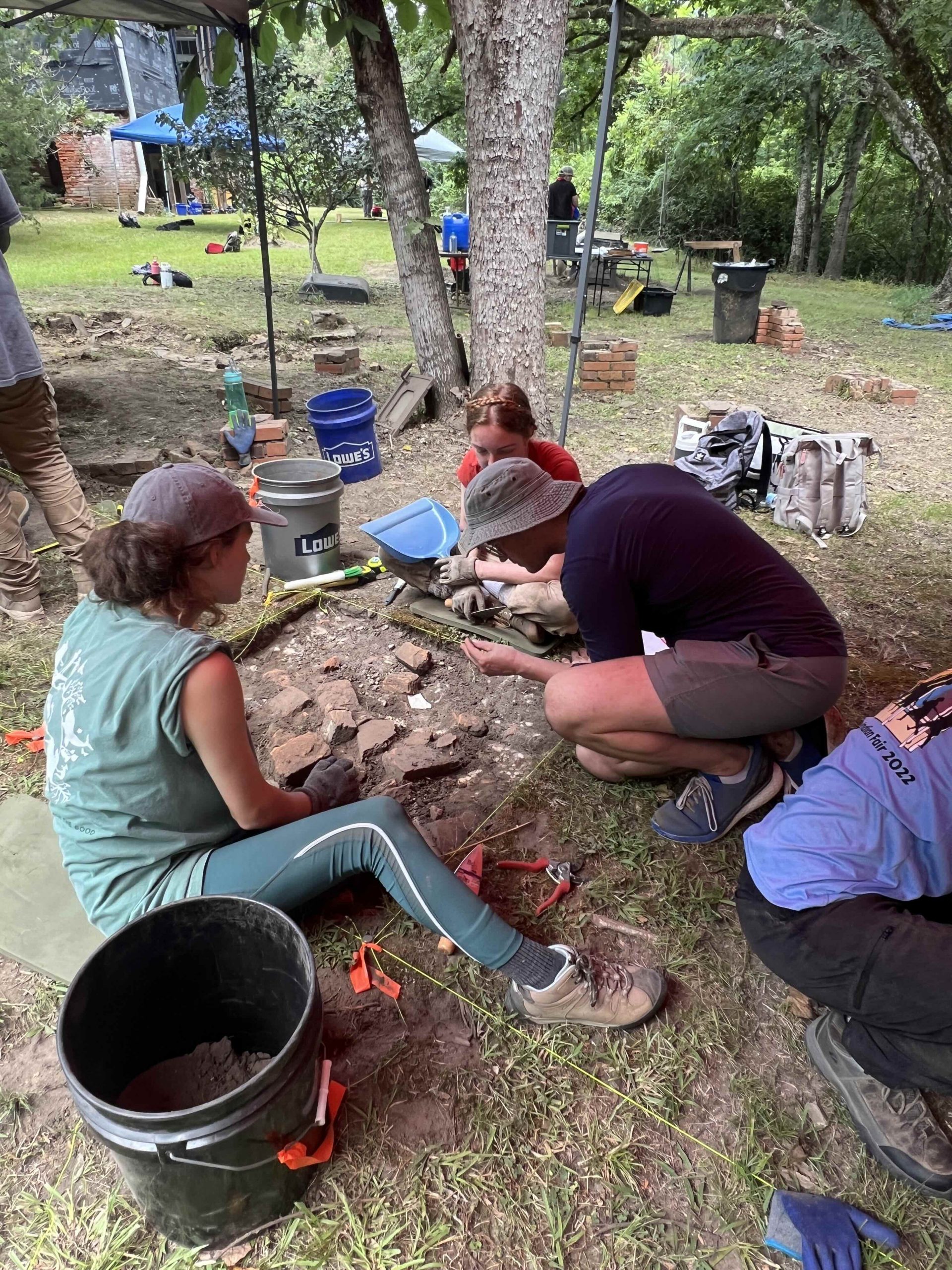
Excavations were conducted in July and August at Prospect Hill Plantation in Jefferson County, Mississippi.
Photo Credit: Jessica Fleming Crawford / TAC
SOUTHEAST—Excavations at the Conservancy’s Prospect Hill Plantation preserve in Mississippi were led in July and August by anthropologists from Troy State University and archaeologist Shawn Lambert of Mississippi State University as part of a multi-disciplinary research project in collaboration with descendant communities connected to Jefferson County, Mississippi and Greenville, Liberia.
Prospect Hill was a large cotton plantation established in the early 1800s by Isaac Ross, a Revolutionary War veteran from South Carolina. At one time, approximately 300 people were enslaved at Prospect Hill. The plantation is significant for its connection to the American Colonization Society, an organization founded to encourage and support the repatriation of free people of color and emancipated enslaved people to established settlements in Africa. Ross was a member and left instructions in his will that upon his death, at his daughter’s discretion, Prospect Hill was to be sold and the enslaved people were to be given the option of going to the Mississippi chapter of the American Colonization Society’s settlement in Africa or stay in Mississippi and be sold in family lots. The overwhelming majority chose to go to Africa. A court battle ensued, in which a grandson of Ross challenged the will, but courts upheld the will and several groups of enslaved people from Prospect Hill resettled in a part of Liberia called Greenville, named after a town in Mississippi.
This summer’s excavation focused on outbuildings behind the main house that were used as a kitchen, laundry room, weaving room, and housing for enslaved people who worked in the house and immediate vicinity. The field school uncovered portions of two structures and found artifacts dating to the early 1800s through the 1940s. Excavations were open to the public and the public was encouraged to participate. Descendants of Ross and other enslaved families visited and were interviewed as part of the project.
Future plans include archaeological research and descendant outreach in Greenville, Liberia. “The research is a multivocal and multiperspective attempt to not only understand the history and archaeology of enslavement at Prospect Hill in Mississippi, but also trace this reverse African Diaspora to Liberia where hundreds of enslaved individuals from Prospect Hill were resettled,” Lambert said.
The Conservancy acquired Prospect Hill Plantation in 2011 and often hosts public outreach events. The preserve contains the main house and 23 surrounding acres. The main house was acquired in deteriorated condition, but in 2016, the Conservancy used grant money and donations to give the house a new roof. The Conservancy continues fundraising efforts to further stabilize the house so it can safely store equipment, host researchers and students, and educate the public about the archaeology of enslavement.
Related: A virtual lecture about Prospect Hill was recorded in Septemeber 2023.




